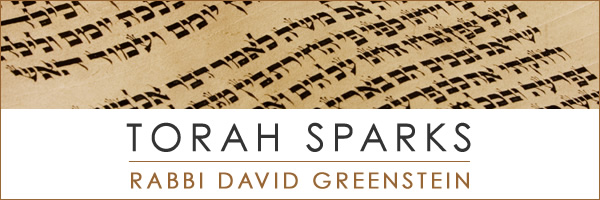Parashat Emor
Leviticus 21:1 – 24:23
Our Torah portion continues formulating rules of ritual purity and impurity and delineating the actions that are prohibited or mandated as a result of maintaining that system of rules. These concerns were especially relevant to the priests who ministered in the sanctuary daily, the audience for the beginning of our portion. But they applied to everyone who sought contact to God through the holy Tabernacle.
The opening of our Torah reading, called “Emor – Speak,” has God instruct the priests about some of these laws. The Sages noticed that the first words of the portion seemed redundant: “Speak to the priests, the children of Aaron, and speak to them…” (Lev. 21;1). Why is “speaking” mentioned twice? Rashi, citing the Talmud (BTYevamot 114a) explains that the doubling is meant “to warn the adults about the children.”
This idea seeks to join our own care about performing right actions and avoiding wrong ones and link it with our care for the upbringing of our youngsters. We know that a child is not to be held responsible for her actions. She is still but a child. Nevertheless, we do not expect children to habitually engage in improper behavior and then abruptly stop when they become bar and mitzvah. Even young children need to be taught to distinguish between right and wrong. How should the adult, the parent, caregiver, guardian or educator, inculcate a sense of right and wrong, of right action and evil action, precisely during the early years when learning is best, yet when responsibility is least?
The Talmud’s discussion explores this question and suggests two possibilities. Everyone accepts the Torah’s commandment, a key part of the Sh’ma, to “teach your children diligently.” But that might apply only to the abstract realm of education, the realm of books, school, casual chats, etc. But what about real life experiences? What about the “doing” that puts the “saying” into practice?
One talmudic suggestion is that the adults are commanded to intervene when they see a child about to do something wrong. The adult must “speak” to the child and tell him to stop or avoid that improper activity. But the counter suggestion is made that we need not intervene when a child is about to do something wrong. Our only responsibility is not to lead the child directly and actively to engage in that behavior.
I would like to believe that most of us would find it hard to accept either of these two approaches as adequate to the kind of quality education we would want to give to our children. Who would argue that we should not stop a child from hitting another creature, content with knowing that we did not goad him to do so? And who would argue that we are not obligated to proactively intervene when we see a fight brewing, and that we are not obligated to forcefully tell our child that she may not behave in that way?
I think we would agree about those cases. But what about other, less clear-cut, examples? What about, for instance, our Jewish behavior? I think the talmudic discussion can entertain such marginal scenarios because it posits as a starting point that the adults, in their own actions, are careful about these behaviors. The children see, daily, always, that the adults take certain actions as commitments and that those commitments carry real weight in their behavior. Every adult action that the children witness speaks to them saying – “Do as I do and do not do what I would not do.” It does not imagine that the
children are asked to “do as I say and not as I do.”
The Torah portion bids us to “speak” to our children about right and wrong. It knows full well that actions “speak” louder than words.
Shabbat Shalom,
Rabbi David Greenstein
![]()
Subscribe to Rabbi Greenstein’s weekly d’var Torah
- Toby Stein: In Memoriam - Thu, Feb 8, 2024
- Faithfulness and Hope: Parashat Sh’lach - Thu, Jun 23, 2022
- Past Their Prime: Parashat B’ha`a lot’kha - Thu, Jun 16, 2022

